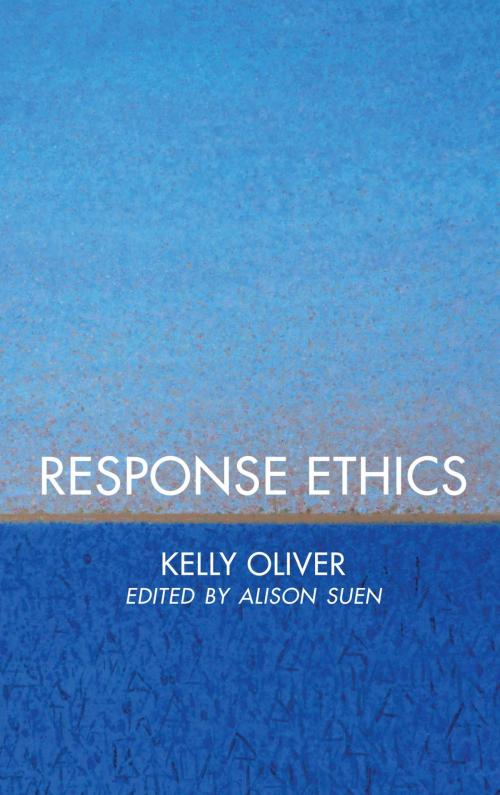| Author: | Kelly Oliver | ISBN: | 9781786608659 |
| Publisher: | Rowman & Littlefield International | Publication: | October 18, 2018 |
| Imprint: | Rowman & Littlefield International | Language: | English |
| Author: | Kelly Oliver |
| ISBN: | 9781786608659 |
| Publisher: | Rowman & Littlefield International |
| Publication: | October 18, 2018 |
| Imprint: | Rowman & Littlefield International |
| Language: | English |
What does it mean to be a responsible subject in a world of pervasive violence? How should we be responsible witnesses in the face of gross injustice? Indeed, how should we respond to atrocities that often leave us speechless and powerless?
In this seminal volume, Kelly Oliver articulates a “response ethics” as an alternative to mainstream moral frameworks such as utilitarianism and Kantianism. Oliver’s response ethics is grounded in an innovative understanding of subjectivity. Insofar as one’s subjectivity is informed by the social, and our sense of self is constituted by our ability to respond to our environment, reconceptualizing subjectivity transforms our ethical responsibility to others.
Oliver’s engagement in various debates in applied ethics, ranging from our ecological commitments to the death penalty, from sexual assaults on campus to reproductive technology, shows the relevance of response ethics in contemporary society. In the age of pervasive war, assaults, murder, and prejudice, Response Ethics offers timely contributions to the field of ethics.
What does it mean to be a responsible subject in a world of pervasive violence? How should we be responsible witnesses in the face of gross injustice? Indeed, how should we respond to atrocities that often leave us speechless and powerless?
In this seminal volume, Kelly Oliver articulates a “response ethics” as an alternative to mainstream moral frameworks such as utilitarianism and Kantianism. Oliver’s response ethics is grounded in an innovative understanding of subjectivity. Insofar as one’s subjectivity is informed by the social, and our sense of self is constituted by our ability to respond to our environment, reconceptualizing subjectivity transforms our ethical responsibility to others.
Oliver’s engagement in various debates in applied ethics, ranging from our ecological commitments to the death penalty, from sexual assaults on campus to reproductive technology, shows the relevance of response ethics in contemporary society. In the age of pervasive war, assaults, murder, and prejudice, Response Ethics offers timely contributions to the field of ethics.















